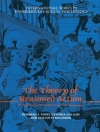This book covers key movements that helped to shape psychology – from the early philosophical debate between rationalism and empiricism or realists and antirealists through to the emergence of psychology as a science and the ongoing debates about ‘objectivity’ and ‘truth’ and what a science of psychology should be.
Often nuanced and complex, the author examines major conceptual issues in the history of psychology that continue to be debated and influence public policy and lay understanding. The latter stages of the book explore notions of individuality, hereditarianism, critical psychology, and feminist perspectives. While deeply rooted in human history, it is made clear that psychology, how it is conceived and practiced, has a bearing on our understanding of what it is to be human.
Accessible, objective and above all comprehensive, this book will help students locate psychology in the wider field of science and understand the forces that continue to shape and define it.
Innehållsförteckning
Chapter 1 – Psychological Inquiry as an Evolving Human Practice
Chapter 2 – Historical Conceptual Issues
Chapter 3 – Science and Psychology
Chapter 4 – Physiology and Phenomenology
Chapter 5 – Nature and Nurture
Chapter 6 – The Mind-Body Problem
Chapter 7 – Philosophy of Science
Chapter 8 – Mainstream and its Critics
Chapter 9 – Critical Psychology and Feminist Psychology
Chapter 10 – Psychological Methods and Practice
Chapter 11 – The Cognitive Revolution
Chapter 12 – Free Will Versus determinism
Om författaren
Brad received his Ph D from the University of Victoria, Victoria, BC, Canada in 1989. His doctorate was in Personality/Theory. He taught Introductory Psychology, History of Psychology, Cognitive Psychology, Psychology of Personality, and Theoretical Psychology at Vancouver Island University from 1989 until his retirement in 2015.












